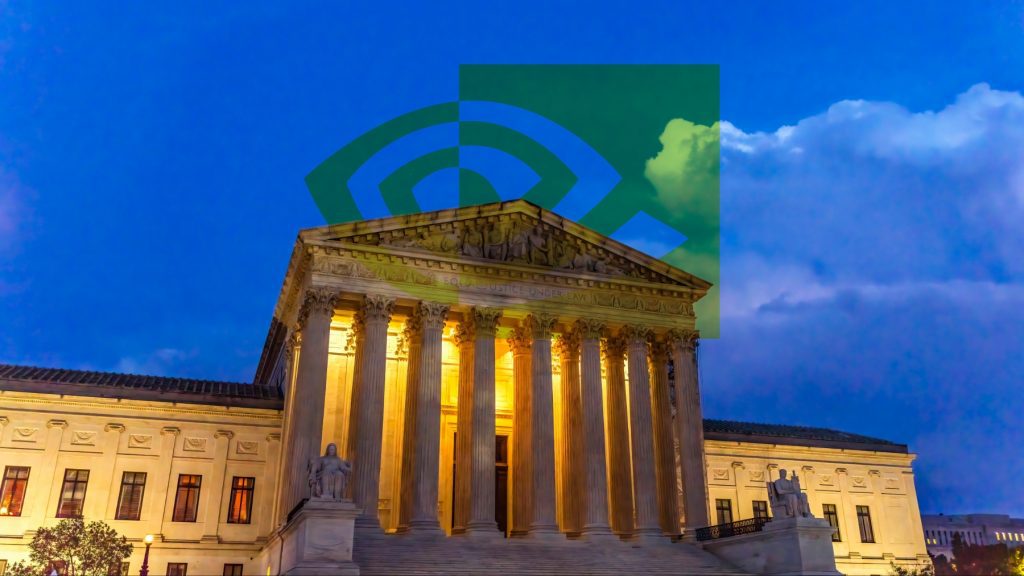
On Wednesday November 13 the US Supreme Court reviewed a class-action Nvidia lawsuit alleging it misled investors about crypto-related revenue.
Led by Swedish investment firm, Öhman, the suit claims Nvidia downplayed its cryptocurrency exposures, and later triggering volatile stock movements as the crypto market collapsed in 2018.
The lawsuit against Nvidia follows the growing scrutiny of tech companies, potentially influencing investor protections and regulatory expectations across the sector. A final ruling by the Supreme Court is anticipated by early summer 2025, which could influence how tech companies disclose revenue sources tied to unpredictable markets, according to Reuters.
Supreme Court Weighs Class-Action Lawsuit
On November 13, the US Supreme Court heard arguments in a high-profile case accusing Nvidia of misleading investors about its reliance on crypto-related revenues.
A Nvidia class action lawsuit, alleges that Nvidia understated its revenue dependence on crypto-related purchases, markedly dropping its stock price when decentralized tokens’ profitability dropped in 2018.
The chip giant has appealed to a lower court ruling allowing the Supreme Court’s Nvidia shareholder lawsuit to move forward. The Court’s decision – expected by June 2025 – could affect disclosure standards for companies with changeable revenue sources.
During Wednesday’s proceedings, Justice Elena Kagan vocalized skepticism toward Nvidia lawsuit and the chip manufacturer’s defense, saying that “it’s less and less clear why we took this case and why you should win it,” according to Reuters.
It comes as the technology giants face an unprecedented judicial review – the Supreme Court debated as recently as last week another class – action lawsuit against Meta, which owns Facebook, regarding data privacy issues associated with the Cambridge Analytica scandal.
New Nvidia Lawsuit AI Growing Reach Under Scrutiny
In the past three years, Nvidia reigned as one of the chip industry’s most influential players in AI chips. The company saw in June 2024, its market value surpasses $3 trillion due to surging demand for AI-capable chips. CEO Jensen Huang has called technology transformative, even referring to it as the “next industrial revolution.”
Be that as it may, Nvidia’s success has raised some red flags among regulators. In 2022, the Santa Clara-based company settled charges with the Securities and Exchange Commission (SEC) for $5.5 million, due to allegations of failing to disclose how cryptocurrency mining became a key revenue driver for its gaming-focused graphics cards.
Nvidia neither admitted nor denied fault in this settlement.
Opening New Vistas in Financial Services
Beyond AI hardware, Nvidia lawsuits positions itself in the domain of the financial services through a full-stack approach to AI. Recent product launches and acquisitions hint at the ambition of the company to service high-demand industries with specialized AI capabilities.
The Supreme Court’s expected early summer decision could have broad implications for investor protections across the tech industry. If the suit is allowed to move forward, it could affect how Nvidia lawsuit does business and redefine how companies approach regulatory demands in the rapidly shifting world of technology.
Inside Telecom provides you with an extensive list of content covering all aspects of the tech industry. Keep an eye on our Tech sections to stay informed and up-to-date with our daily articles.